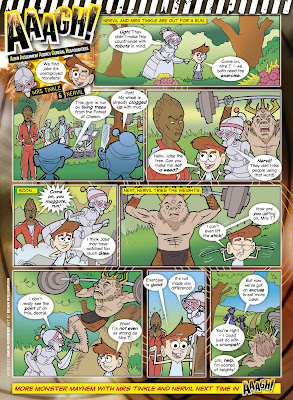 Cleaning Up
Cleaning Up won Best Thriller at the
Aesthetica Short Film Festival this weekend. Brother Tom and I had an amazing time in York, seeing loads of the 150 short films shown, comparing notes with lots of spectacularly talented film-makers and wannabe film-makers, and generally larking about.
As a result of all the nattering, we've realised how much we've learned by making our film – and stolen from all the clever people we've worked with.
Calling cardShort films are a way to get noticed, to get more – or different – work, and to prove that your idea for a TV series or film really works. Make your short representative of the things you want to do next.
VolunteerWe spent a day as runners on
Danny Stack's Origin and two days as coppers on
James Moran and Dan Turner's Girl Number Nine. That gave us a good sense of what to expect, plus we learned loads of practical things that helped us set up our film and make the shoot run smoothly. We also nicked Danny's producer, one of James and Dan's stars, and loads of crew from both.
ResearchWatch all the short films you can. Go to the festivals. Buy the DVDs of award-winning shorts. If you've got a particular genre or audience in mind, research it and find out what other people are doing. Most festivals will put your film in a group with a similar theme (we've been shown as a thriller, a comedy, and as part of a group called “wrong place, wrong time”).
No matter how much of a film buff you are, the festival programmers will have seen more films than you. A festival can easily receive 1,000 to 7,000 submissions. What makes your comedy, horror, fantasy any different from the hundreds of others? What are you doing that's better? Watching lots of film, you’ll see they usually all very well made. And then one makes you sit up and take notice. How can you make your film do that?
GenreAre you making a genre piece – comedy, horror, thriller? That can help you place your film with the festivals, sell it to an audience, build a following. Having watched a huge number of shorts now, comedy is clearly the hardest to get right – and there's nothing worse than an audience sitting stony-faced waiting for a comedy to end. But when it's right, when it works, you can be the talk of the festival.
Good scriptWe watched a lot of short films before making ours. A lot of people will tell you that it's easier to make films now – you can even get mobile phones that record in HD. But that makes it all the harder to stand out from the rest. A lot of short films look beautiful and are stylishly played and edited. But the thing that makes the best ones stand out is that they have good scripts. Commission a writer, as Tom did, to write something an audience will remember.
It also helped that we had a professional TV writer as our script editor. Joseph Lidster made me work very hard: the script for
Cleaning Up went through more than 20 drafts.
Why should anyone care?You need to ask this a lot. Will the basic idea of your film grab people? Will the tag line? Will the names of the actors help sell the film? Are the roles they're playing not what they normally do? Or is the point that you're using people who aren't so well known? Your film needs to fight to gain attention.
Make a film on your ownBefore you start assembling a big cast and crew, make a small film first, perhaps on a mobile. That way, you understand the process from start to finish, can see where your weaknesses are and can make a lot of mistakes – without a whole huge crew watching. It doesn't have to be any good; you don't have to show it to anyone. But edit it, put music on it, make sure you complete it.
Make it countThe standard of shorts is high, so make sure your money shows on screen. Every shot and line of dialogue has to count. Good locations, good production design and music all help sell your film. (A heck of a lot of short films include sunsets, which look amazing and are cheap.)
What do you offer the star?I'm presuming you don't have much of a budget. So the only thing you can offer an established, “name” actor is a good script, with a good role for them – and something they don't normally play. And you've no comeback if they turn you down. Nobody owes you this.
Also, every actor should play a character with a name. They've given their time and skill for free, so the least you can offer them is a credit as “Keith”, not “Guard number 5”. It looks better on their CVs.
What do you offer the crew?You're (probably) not paying people, so you have to treat them well. Don't tell them it's a great opportunity for their careers (klaxons go off, there are axes and bazookas). Define the working hours – and stick to them. Make sure there's a good lunch provided for everyone, tea and snacks and supplies.
You're the one who'll benefit from the film, not them. So you need these people more than they need you. And a good, experienced crew is essential. Ideally, you'll be the least experienced person on set.
SchedulingYour cast and crew will – and should – drop you in an instant if they get another good, paid gig. You also find you can't work the schedule to get your dream cast and crew together in the same same place at the same time. So you have to work out who is the most important.
Say what you don't knowI made a stupid blunder on
Origin by not letting on that I didn't know how to work the walkie-talkies. Don't bluff your way through. Ask advice. Listen and learn. There's a lot of bullshit in films – you have to big a project up just to get it made and seen. But people, especially the crew, will be much happier when you're honest.
PrepareDo as much groundwork as you can yourself. Your producer and crew may only be there for the shoot itself. Make people's lives easy, and have as much prepared in advance as possible.
ToneYou set the tone of the shoot. So be cool, decisive and fun. As director, everyone will want your opinion all the time, so know what you want from every aspect of the film – and don't dither when they ask you. A happy crew works 10 times harder.
AdaptAs much as you might plan, all shoots run on luck, short films even more so because there is no money. So you'll have to adapt and improvise. Roll with it.
GratitudeSay thank you. Buy drinks. Have a cast and crew screening. Keep everyone informed of what's happening. Return the favours people have done you. Let them know to call the favours in.
EditWhen you finish filming, you're halfway through the process. Keep your film short and relevant. Cut every frame you can.
Cleaning Up lost a whole scenes and at least one of my favourite lines. Be ruthless. Audiences sitting through lots of shorts in one go will thank you.
TrailerMore people will see the trailer than the film. The cut of the trailer is potentially more important than the cut of the film.
WebsiteDon’t just watch lots of short films – look at how they’ve marketed themselves, too. Some do fancy websites and loads of PR, others don’t. We based our efforts on the Academy Award-winning short
The New Tenants.
Don't waste people's time. You want a simple, good-looking website where people can quickly – no, immediately – find your trailer, a list of cast and crew, the tag lines and blurbs, a press release and how to contact you. Make it easy for people to see where it's playing and what awards you've won.
We'll write about sending your finished short out into the world later, when we've a better idea of how what we've done has worked.
 Another festive AAAGH!, this one from Doctor Who Adventures #246 and owing a little to last year's Christmas special, A Christmas Carol, but with added monsters and tomfoolery. As ever, it's written by be, illustrated by Brian Williamson and edited by Paul Lang and Natalie Barnes - who also gave kind permission to post it here. You can read all my AAAGH!s.
Another festive AAAGH!, this one from Doctor Who Adventures #246 and owing a little to last year's Christmas special, A Christmas Carol, but with added monsters and tomfoolery. As ever, it's written by be, illustrated by Brian Williamson and edited by Paul Lang and Natalie Barnes - who also gave kind permission to post it here. You can read all my AAAGH!s.























